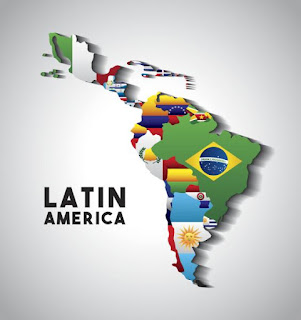Week 2 : Love Explored in Ancient Eastern Literature
Love Explored in Eastern Literature
This week's reading
Included literature works by Du Fu, Classic of Poetry, and The Story of Yingying.
To give context and
cultural context to the readings, students also read about Confucian Philosophy and a scholarly journal
explaining the concept of "Wen." Moreover, the unifying theme in all
the literature explored this week was love.
In The Story of
Yingying, we are engulfed in a passionate romance between Zhang and
Miss Cui; it is love at first sight. Zhang is so smitten by Miss Cui that he
forsakes all traditional customs of courting through a matchmaker; instead, he
sends her passionate poetry, which she at first rejects but later
accepts.
In the Classic of Poetry, we
read a series of poems that share desire, passion, and romance. In Zhongzi,
Please, in a poem included in the Classics, a young woman expresses her desire
for a man while telling him to respect boundaries not forsake but for the sake
of her family. Zhongi, please, is a poem that shares how strong
feelings like love and desire were submitted to cultural traditions.
Another poem in the Classics is Quince, in which
a man expresses that he is aware that he is in an unequal relationship. The man
gifts extensive jewels to his love interest, but she returned a quince, peach,
and a plum. However, the man believes that the love will last between them as
long as he gives her expensive gifts.
When reading about Du Fu, China's
"poet-historian," we learn that his poetry not only marked historical
events but they also depicted the deep love that he had for his wife. In Moonlight
Night, Du Fu imagines his wife staring up at the same moon he does, but he
is happy that she is safe while he remains captive in the city during the
rebellion. Then in Quang Village, Du Fu shares that he has escaped
the capital and is reunited with his wife and family.
Teaching
Discuss the use of
"wen" in Chinese literature and ask students to point out where they
can see how words are used to "manifest" abstract concepts.
Ask students if they can
see examples of how words can describe abstract concepts in other literature they are familiar with.
Pop Culture
Connection
Shakespeare is regarded as one of the greatest English writers; one of his greatest romantic tragedies is Romeo and Juliet. Much like The Story of Yingying, Romeo, and Juliet have a tragic ending. Shakespeare's works have been adapted into more modern storytelling and even turned into Hollywood blockbusters.
You can watch the trailer and observe how the writers kept the original Shakespearan language, but the setting is modern.
Pop Culture Connection to Literature Activities
Divide sections of The
Story Yingying and students into groups and have students rewrite
scenes of the story into a more modern setting.
Ask students what they
would change while keeping the poetic language the same( like we saw in the Shakespeare movie trailer)?
Ask students if "love" and its cultural customs cross the boundaries of time? Are those customs still relatable today?
References
Longxi,
Z. (1996). What is wen, and why is it made so terribly strange? College Literature, 23(1), 15.
Bevington,
D. (2021). William Shakespeare | Plays, Poems, Biography, Quotes, & Facts.
Retrieved 10 July 2021, from https://www.britannica.com/biography/William-Shakespeare
Confucianism
| URI. (2021). Retrieved 10 July 2021, from
https://www.uri.org/kids/world-religions/confucianism?campaignid=11754335235&adgroupid=114421536176&keyword=confucianism%20religion%20beliefs&device=c&gclid=Cj0KCQjwiqWHBhD2ARIsAPCDzamy9-viKyqBNtGEv7-_CPq6VBfwNSkdwiHb3IlLVQLHgjLBPn8SNaMaArJEEALw_wcB
Du Fu |
Poetry Foundation. (2021). Retrieved 10 July 2021, from
https://www.poetryfoundation.org/poets/tu-fu
Shakespeare,
W. Romeo and Juliet: Entire Play. Retrieved 10 July 2021, from
http://shakespeare.mit.edu/romeo_juliet/full.html
Zhen,
Y. The
Story of Yingying [Ebook].
Retrieved from https://chinatxt.sitehost.iu.edu/EAsia-survey/Cui_Yingying.pdf







Comments
Post a Comment